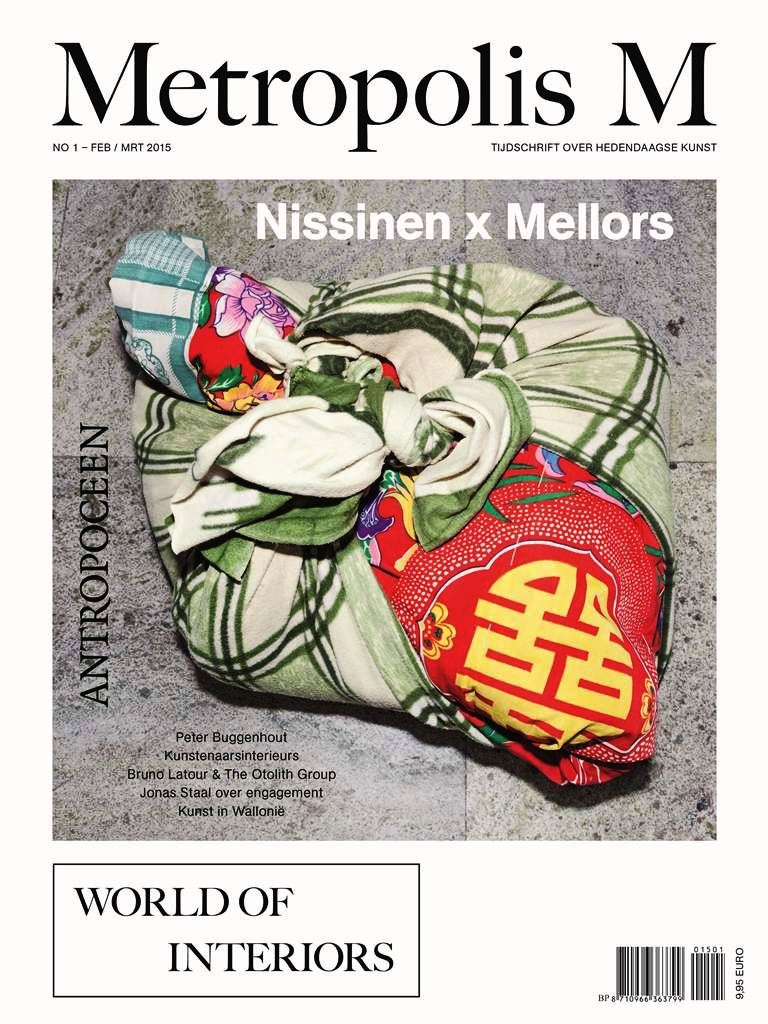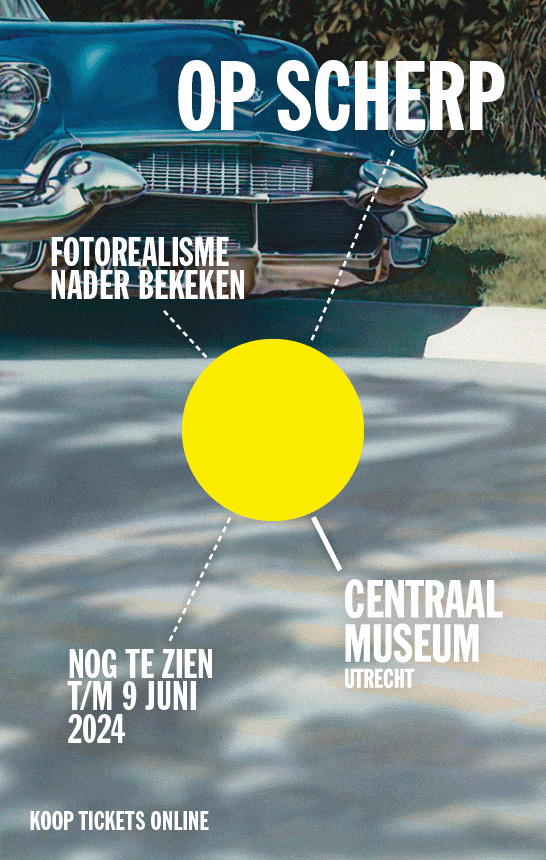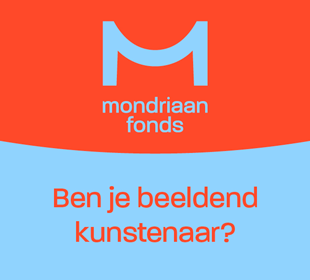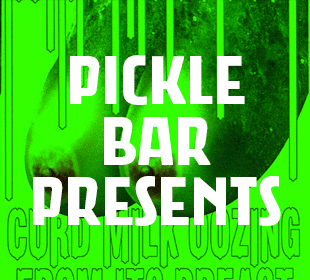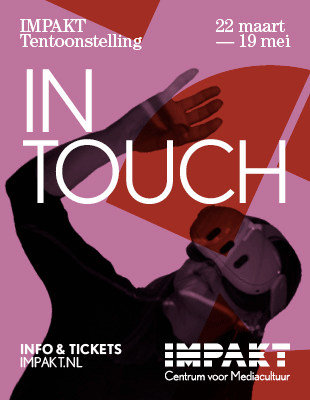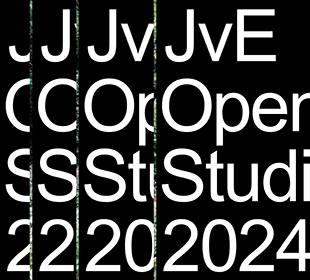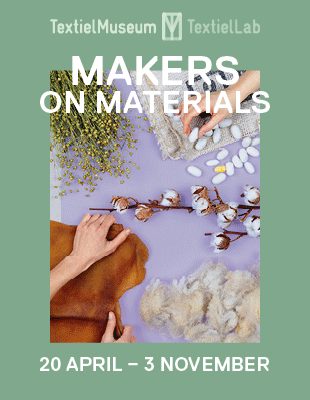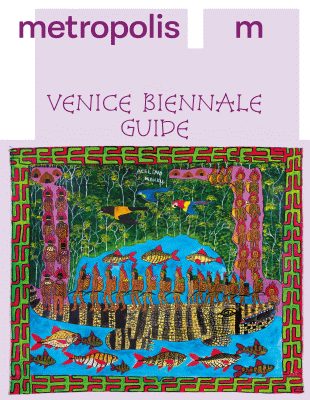Teeth-Tooth-Teeth – interview Erkka Nissinen
Op verzoek van Metropolis M interviewt Nathaniel Mellors collega-kunstenaar en vriend Erkka Nissinen, met wie hij samen op de Rijksakademie zat. Vanaf maart exposeert Nissinen in De Hallen in Haarlem een installatie van eigen werk en oude schilderkunst.
Can you hear me?
Yes, I can hear you. Are you recording?
Now I can’t really hear you. It’s recording. I can’t really, it’s really bad.
Okay, I’m going to call you back.
No, no, actually now I can hear you.
Are you sure?
Now it’s recording and I can hear you.
It’s recording and you can hear me.
Yes.
Okay, this is, are you sure this is not an elaborate game of poo-pong?
No, this is not. This is not. I’m being serious.
How would I know? How would I know?
I’m giving my word.
You’re giving your word?
Yes.
Okay, well that’s good enough for me. I don’t think you’ve ever given me your word before. (Laughter).
I didn’t go so far.
No, you’ve never – (laughter)
I’m happy that you value my word.
Yes.
I’m feeling too emotional now to continue with the interview. Do you think we could try again later?
Maybe next week.
Maybe we could start this just after the deadline and you can keep your press profile low. I know you prefer it that way.
Ah yes, yes, just to appear more on the edge, or on the fringe of things.
Just to appear less visible.
Just to be more alternative, in a way.
Okay.
I’m now really aware that this is being recorded by me.
Okay.
I need to break this awareness.
Okay, well maybe you could confuse yourself in a way.
I have to inflict pain on myself.
Yes, you need a distraction, that’s right.
Yes. I need somebody to inflict pain on me.
Yes.
To take this awareness away.
You’re normally quite good at that.
Yes, I am. It just happens. I suffer quite a lot. My speciality. Various forms of suffering.
Have you gone straight to the heart of your art, with this revelation right at the beginning?
Yes. (Laughter). I’m sitting here and being really aware of being recorded by my telephone.
Yes, well, I don’t think there’s any other way to do the interview, so I’m just going to force you to –
Yes.
You want to do it though, don’t you?
I like this. Actually I really kind of like this.
Exactly. You’re enjoying the attention in your own particular way.
Yes, I am.
Okay, so how are you? What’s going on? I thought you were in New York?
I came to Finland for the dentist. They were going to pull out all my teeth in New York.
They will. They’ll pull out all your teeth and they’ll charge you a lot of money for it.
They wanted to charge me thousands of dollars.
Per tooth?
Yes one thousand. Many, many thousands. Even though I was treated by students who were experimenting on me. (Laughter). It was the cheapest possible dentistry you can get in New York.
So you pay to be experimented on? And that’s the cheapest form of healthcare?
Yes and they seem to find a lot of things that are wrong with my teeth but that was proven not to be the case by the dentists in Finland. By the professional dentists.
Wow that’s interesting. So almost like a return to a kind of Cold War scenario?
Yes.
Played out through different forms of – two different dental ideologies? A clash?
Yes. They are really, I’m in the collision point of these two dental ideologies. I don’t know which one to believe.
Okay.
I’m troubled by this.
Okay. So what we’ve identified in a way, some kind of locus for your art, again, early on in the conversation. It’s going better – it’s going really well. Do you think it would be fair to say that your art practice, such as it is, exists at this kind of uncomfortable collision point between two different dental ideologies?
I don’t know which one to listen to. I don’t know which voice should I listen to. Which voice is correct? I want to make correct choices.
Yes, I know you would.
I only make things in order to make correct decisions.
I know. You always want to make correct choices.
Yes, I want to be fully optimised at –
Exactly. It’s like the way you set up your bicycle. One of the first things you noticed about the Dutch was that the way they set up their bikes was fully optimised.
It was not.
Sorry no, that’s right.
It was not fully optimised. The Dutch bike, it is not fully optimised.
Yes.
I’m heavily critical about the plastic cover of the chain, which is overly elaborate in Netherlands. It is unnecessary so and I think it’s purely decorative function.
Do you think so?
Yes.
It’s a bit like wearing a belt, or – no, no that’s practical.
It’s a bit like wearing a cravat.
Cravat? Yes, yes. That’s a good analogy.
Yes.
It’s the bike’s cravat, yes. Good. I want to go back to the dental thing because I think –
Yes.
Did you see that story about the guy in India getting all these thousands of teeth pulled out?
Sorry, what did you ask?
Did you see the story about the guy in India who had all these thousands of teeth extracted by an Indian dentist?
He was able to grow thousands of teeth. Tooth, teeth.
Yes. Thousands of tooth, yes.
That’s quite a skill.
I mean it is a skill. Can you imagine how much money that guy would make for American dentists?
It would be quite expensive for him to live in America.
Yes. Where are you staying in Finland?
I’m visiting somebody, some friends.
Oh okay. That’s nice.
Yes.
Who are they?
These are my friends. (Laughter). These are real people.
Yes I wasn’t – I mean I know – well that’s great. I didn’t know you had friends in –
I feel so lonely otherwise.
Yes. So they help you in that respect?
They help me.
That’s great.
Thank you.
Are they old friends? Or are they some new ones?
They are old friends.
Okay.
The new ones are the ones that are not –
Not proven?
They are not proven.
That’s good, that’s great. Well, okay. So then. What are you working on at the moment? Although I feel like now we’ve covered – the interview’s already quite good. I think we could just end it here.
Yes. Otherwise it’s going to be too much, too substantial.
Yes. It could be too much.
It’s – the interviews are too explanatory and substantial otherwise, maybe it’s not very interesting?
Yes. That’s the problem, too many –
Traditional questions.
That’s one of the big problems with things you read in art magazines though – they’re too substantial.
Yes, exactly. (Laughter). Too informative.
Yes, exactly.
When actually it’s much more interesting to enjoy the form of the journalism.
Exactly.
And it not really saying anything.
Yes, yes. Much more. So I know you’ve been in New York trying to set up an underwear shop – is that right?
Women’s wear shop.
Women’s? So not underwear?
No. I have moved on from the underwear business.
Okay, what happened?
The profit margin is really slim.
The profit margin?
Yes.
The profit? – okay. So you think – okay. And what is the difference between women’s wear and underwear?
Men wear underwear. (Laughter).
Oh well what do women wear then?
They wear underwear also, they wear women’s wear and underwear.
Okay. Well that seems clear.
Yes. (Laughter).
So –
These are very basic concepts.
Yes this is a kind of practice – is this a – so this is your – because maybe not everyone knows that you have a hybrid Finnish/Chinese women’s wear company?
Yes. Yes, it’s a hybrid.
So okay. So you’ve been setting that up in New York and have you been making any new art?
I have been trying but it’s difficult.
Yes. It is difficult. It is difficult.
Yes. I think that making art is maybe too difficult. I might give up.
Yes. You could give up, yes. But you often – I feel like you often say this. I mean I feel like you have been talking about trying to give up art for the whole ten years that I’ve known you.
I thought that maybe if I managed to create a situation where I’m not aware of making art it could be more relaxing. If I’m just spontaneously making art without actually – just like now I am too aware of this being recorded.
Ever since we were at the Rijkskademie you were very concerned that your work wasn’t spontaneous enough.
Yes.
So what you’re suggesting is that if you give up making art you might be able to become better at making art?
I might be able to produce more work because I would be – I would finally find spontaneity.
Yes.
So it’s this fine line. Similarities to dental ideologies of being fully optimised and spontaneity – spontaneous.
Yes.
Where I see Americans spontaneously pulling the teeth and Finnish dentistry being slightly more optimised in that sense.
The American dentists –
And kind of maybe more sane, the Finnish dentistry.
Right.
In comparison to American dentistry which is quite creative.
Well if they’re pulling ants’ teeth, did you say?
But expensive.
The Americans are pulling the teeth of ants?
They are pulling teeth – thousands of teeth of Indian people and charging a lot of money.
Yes.
Of native Americans. Teeth, dental, teeth.
Okay. I thought you said the Americans were pulling thousands of ants’ teeth?
Ants? That’s a nice idea also. This is an example of creative American dentistry.
American ingenuity. Yes, exactly.
Yes.
So, okay. So, I don’t now know what to say.
Yes. We have basically covered everything already.
I think we might have covered everything.
Now we are just going in loops.
Shall I ask you some of the questions that Domeniek asked me to ask you?
Ah, okay. I can’t hear anything.
I’m not saying anything. Hang on. I’m just reading the questions.
Oh alright, okay.
Yes. (Laughter). That was the question.
Yes.
It’s just a pause.
You are giving me too much freedom.
Yes. Yes I know that’s confusing.
I need some kind of –
Structure?
Restriction. Structure.
You do work with a lot of restrictions, don’t you, because I mean you’ve always, you’ve always been working – you do professional design work and you also have a family so you’re always working in a way that you’re kind of making art out of a difficult, you know, often with a kind of, a number of practical restrictions really on your time? In all the time I’ve known you. You know?
Yes. Life arrangement restrictions on my living arrangements.
Life arrangement restrictions on your living arrangements? Yes.
It’s a good sentence. (Laughter).
Yes, it is. Do you have any – is there anything you’d like to say about that?
It’s necessary.
Okay and what are you trying to work on at the moment?
I’m trying to make a painting installation in De Hallen.
Oh yes, great.
Using sixteenth century Dutch painting, doing narrative. Sort of light – light and painting installation.
Is it for the Jan van Eyck side? Or is it for De Hallen?
It’s De Hallen and what is the other museum?
Sorry – the Frans Hals.
Frans Hals.
Domeniek cut that out so I don’t look like an idiot.
So it might be, what’s it called, some borrowed paintings from the Frans Hals museum and possibly sculpture and make an installation. The sort of narrative stuff I have made before, using my own paintings. So I think this time it could be like a combination.
That’s brilliant.
My own shit paintings and old paintings.
Yes. That would be a good – that would be a neat combination, I think.
Yes.
I can see that working.
Then at the same time I’m possibly making a video about, I don’t know, about the military. For another show, around the same time, but I didn’t get any response from them. I suspect that they didn’t like my script.
Okay. Whereabouts would that be, the show about the military?
It’s – what is that – Kunstlerhaus… So kind of, I can’t remember the name actually. It’s a military structure in the Netherlands.
Okay and so is the show – so the whole show has a military theme or is that just something that you’re –
The whole show has a military theme.
Okay and do you know what you want – what was your – what was wrong – what do you think about your script is potentially problematic?
I made it very fast and it’s not about the military that much. (Laughter).
Okay. So you just ignored the curatorial theme?
Yes.
Yes.
Yes.
Well sometimes you know, sometimes it’s important to do that.
I was unable to force my mind into this thing.
Into the military paradigm?
Yes.
Didn’t you – I thought that you, didn’t you do military service in Finland?
I did civilian service in an art museum. In the contemporary art museum.
And did that involve any military training?
No I never managed to receive any serious military training. I don’t know how to – I have never shot a gun.
No. No, no, no, no, no. Well I can imagine shooting a gun would be – could be quite difficult.
Yes.
I mean they’re not that big.
No. (Laughter). It’s a very small target.
Exactly.
It depends on the size of the gun and what distance – the distance to you.
I’d feel good about shooting a gun if I was standing really close to it.
Yes for example if it’s canoon and it’s very, very close.
A canoon, yes. Yes I think I could shoot a canoon like if I was about within three or four feet of it, I think.
I would be quite worried about the reflection of the bullet.
Yes, a ricochet? Exactly.
Ricochet okay.
Yes.
That’s a new word, thank you.
No that’s okay. So is ‘canoon’, which I love, by the way. So this brings us to the fact that obviously a big part of your art is having a ridiculous voice. There are some –
Based on me saying English words with Finnish accent?
Yes, in an amusing way. We’ve talked about this before. I think one of the questions Domeniek wanted me to ask you was about this. Here is a question from Domeniek in relation to the voice. It seems in some of your works, at least the ones I have seen, there is a ruling voice, at least a voice that is trying to rule or trying to give direction to events but maybe failing, also maybe being obstructed a lot of the time, hopelessly lost in disputes but trying, do you agree?
I forget what I was going to say with this. I had something in mind but I –
Do you want me to –
You rendered me speechless. My ruling voice.
The question’s rendered the ruling voice speechless. Yes.
Yes. It was so nicely constructed a question that –
Yes I think it was a very nicely constructed question –
In itself. I think the question already is so lyrical that –
Yes.
It’s my knick-knack, this voice.
That’s the name for your voice, is that like your pet name for your voice? Your knick-knack?
Yes.
Domeniek also wants to know what is so attractive about this – about your voice?
My voice?
Yes.
I guess it’s, my work is kind of based on my own clumsiness and my inability to act and to speak English properly.
That’s something that you would – that you feel is attractive?I just sort of – that’s there naturally but I will sort of amplify it slightly in my videos.
I don’t think you should be trying to answer this seriously.
Yes.
I think though that’s a mistake. I’m trying to feed you.
Are you trying to feed me lines?
I’m trying to feed you lines, yes. What we’ve, well the questions are establishing a number of things I think which you’re failing to answer but I think the questions have established that you have a ruling voice. That your voice is very attractive. It’s an attractive ruling voice.
Thank you.
Also then the question, does the voice ever take over from you?
No. (Laughter).
Can I ask you that again and can you say yes this time? And then talk about being possessed –
Okay.
– by your own voice.
Okay.
So does the voice, does your voice ever take over from you?
Yes, I’m –
How?
I’m possessed by it. I cannot stop it.
That’s interesting.
Yes. I’m suffering. I’m being pulled. It’s pulling me. Kind of deeper.
Being possessed by your own – by a very attractive voice –
Yes.
– which is your own voice.
I’m slightly attracted to my own voice. (Laughter).
So in a way what you’re implicitly identifying is a sort of separation between your own attractive voice, which possesses you and you yourself? Like these are two – again two potentially oppositional phenomena.
I find it – I see that’s a totally, entirely different person I have slightly, maybe homosexual feelings towards this person, which is my voice.
You feel a kind of reflective attraction, which you’re sexualising. Or not?
With this familiarity.
Yes. So in a way you’re being –
Which is sexualised.
So in a way you’re being constantly seduced by your own voice?
At night – but I try to resist.
Yes. Do you think that –
Well maybe once.
Yes.
Once or twice might have granted it some form of attention –
I think that used to happen to Jimmy Stewart as well.
I don’t even know, who is Jimmy Stewart?
He was – okay do you know who Cary Grant is?
Yes. Ah yes, okay. Now I know who is Jimmy Stewart. Thank you.
Okay. What would – here’s another question – what would you consider to be a basic line in your work?
I don’t know.
Can I answer for you?
Yes.
A spiral’s a very basic line.
It’s kind of between two points.
Yes. Yes, a line between two points. Yes. What’s something the viewer should take with him, I’m going to say or her, after seeing the film?
I hope to make films that are sort of useful for –
That’s interesting.
Something that people could masturbate on. (Laughter).
You’d like them to have a kind of pornographic function or a kind of erotic function?
If possible.
It’s possible I think – just depending on the viewer, you know? Maybe you have an ideal viewer?
Yes.
Who would become what? Quite aroused by –
Yes. I hope people would become aroused by my videos.
What makes a film good?
(pause)
Okay, no answer to that one?
No. It’s a mystery. (Laughter).
Yes it’s a mystery. I agree. I agree. What does it mean to live in a place away from home?
I don’t know.
Well have you ever been away from home? You’ve never been away from home have you?
I’m not sure.
No it’s hard to tell.
I’m not really living anywhere at the moment.
No.
Nathaniel Mellors
is kunstenaar en muzikant